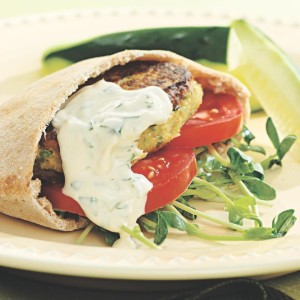Why We Should Eat A More Plant Based Diet
It has been long established that eating a more plant based diet can lower risks of heart disease, reduce blood pressure and decrease risk of type 2 diabetes and stroke. There is also a correlation between animal proteins and cancer. The American Cancer Society recommends eating a healthy diet with an emphasis on plant foods. It is also easier to lose and maintain a healthy weight when you consume a more plant based diet. Fruits, veggies, legumes, nuts and seeds have fewer calories and saturated fat than animal proteins (and cost less too!). A recent study in JAMA found that there is a direct link between mortality and a high animal protein diet and that a high plant protein diet had an inverse relationship to mortality. This study focused primarily on red meat. So do you need to become a vegetarian to live a long healthy life? NO, But reducing red meat consumption, increasing fish and poultry and significantly increasing vegetable protein such as nuts, seeds, legumes and tofu are highly recommended. I say, start with one day a week that you commit to being meatless. The governments started a campaign called “Meatless Monday” many years ago. Check out the website for great recipes and ideas for reducing animal protein and getting creative with food. Some easy ways to start:
- Try a tofu stir fry with tons of veggies for dinner
- Swap out that hamburger for a bean burger (recipe below-not entirely meatless as there is yogurt, but super yum)
- Make a vegetarian taco salad with black beans and pinto beans
- Cook a big pot of hearty lentil soup
- Swap out your regular cheese for soy or nut cheeses in your recipes
- Add beans or tofu to your salad instead of the usual animal protein
- Snack on hummus or nut butter on a rice cake
Even eating meatless one day a week can make great benefits to your health. Reduce red meat as much as possible and enjoy all the benefits that plant foods provide! You do not have to be a vegetarian or vegan to live a long, healthy life. Practice moderation with animal protein and increase those veggies!
Chickpea Burgers & Tahini Sauce
EatingWell Magazine August/September 2006
Ingredients:
4 servings
- Chickpea burgers
- 1 19-ounce can chickpeas, rinsed
- 4 scallions, trimmed and sliced
- 1 egg
- 2 tablespoons all-purpose flour
- 1 tablespoon chopped fresh oregano
- 1/2 teaspoon ground cumin
- 1/4 teaspoon salt
- 2 tablespoons extra-virgin olive oil
- 2 6-1/2-inch whole-wheat pitas, halved and warmed, if desired
- Tahini sauce
- 1/2 cup low-fat plain yogurt
- 2 tablespoons tahini, (see Ingredient note)
- 1 tablespoon lemon juice
- 1/3 cup chopped flat-leaf parsley
- 1/4 teaspoon salt
- Active 25 min
- Ready In 25 min
- Place chickpeas, scallions, egg, flour, oregano, cumin and salt in a food processor. Pulse, stopping once or twice to scrape down the sides, until a coarse mixture forms that holds together when pressed. (The mixture will be moist.) Form into 4 patties.
- Heat oil in a large nonstick skillet over medium-high heat. Add patties and cook until golden and beginning to crisp, 4 to 5 minutes. Carefully flip and cook until golden brown, 2 to 4 minutes more.
- To prepare sauce & serve: Meanwhile, combine yogurt, tahini, lemon juice, parsley and salt in a medium bowl. Warm pitas, if desired. Divide the patties among the pita halves and serve with the sauce.
- Make Ahead Tip: Cover and refrigerate the uncooked burger mixture and tahini sauce for up to 2 days.
- Ingredient Note: Tahini is a thick paste made from ground sesame seeds. Look for it in the Middle Eastern section or near other nut butters in large supermarkets.
Nutrition information
-
Per serving: 400 calories; 15 g fat(3 g sat); 9 g fiber; 54 g carbohydrates; 15 g protein; 133 mcg folate; 48 mg cholesterol; 3 g sugars; 0 g added sugars; 809 IU vitamin A; 19 mg vitamin C; 148 mg calcium; 4 mg iron; 715 mg sodium; 494 mg potassium - Carbohydrate Servings: 3 1/2
- Exchanges: 3 starch, 1 vegetable, 1 lean meat, 1 1/2 fat




